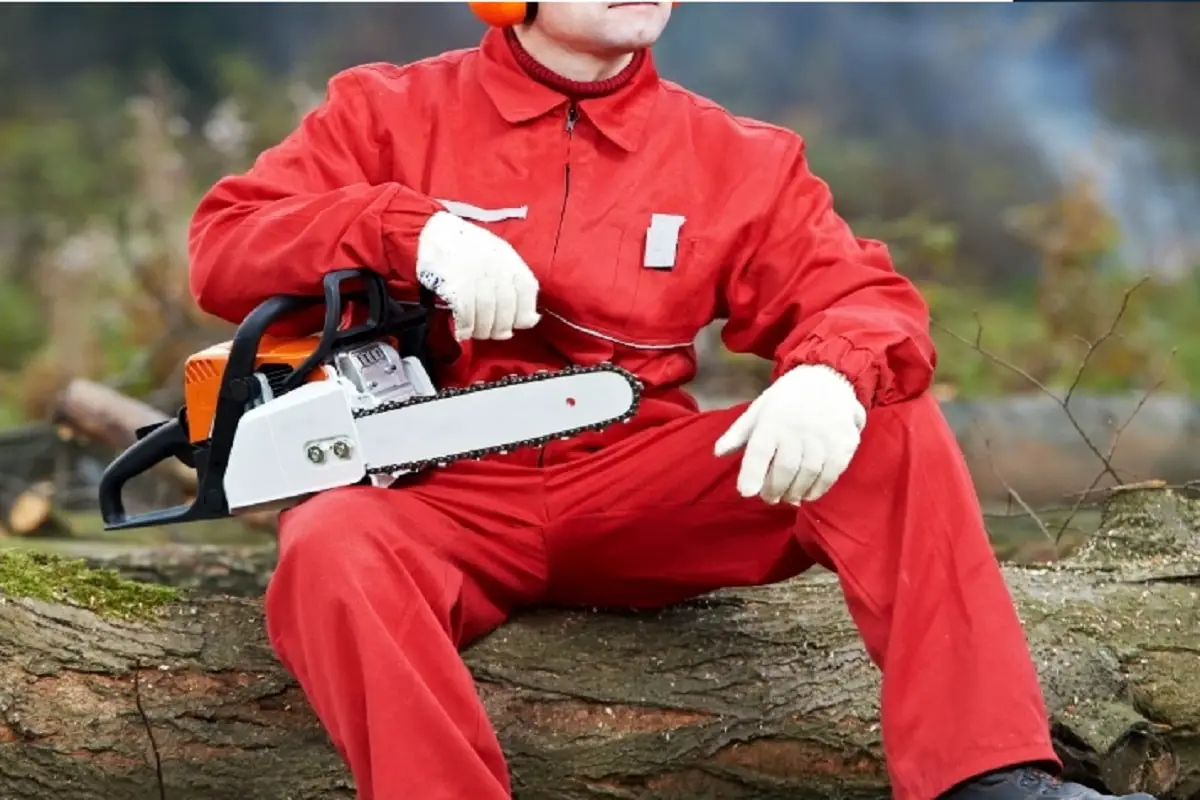Chainsaws are powerful cutting tools that anyone can learn how to use safely. However, they can also be very dangerous and it’s important to know how to use a your chainsaw correctly.
Is there a way to get certified to use a chainsaw in your workplace or as a contractor? We cover this below.
Chainsaw Safety Training – What You Need To Know
Chainsaw Qualifications – Do You Need Them?
Qualifications serve to verify to others and employers that an individual knows how to complete a task and use required tools and equipment. In relation to chainsaws, forms of qualifications do exist depending on the organization that deals with them. Chainsaws are small in relation to much larger equipment types such as tractors and trucks which do require specific licensing to operate.
In the U.S.
The United States does not mandate users of chainsaws to have certifications, however, it is recommended. Each state may have separate laws and regulations when using chainsaws for home or industrial use. Some states may not allow anyone under the age of 18 to use a chainsaw in a professional capacity.
In Canada
Canada also does not require chainsaw users to be certified or even trained to use a chainsaw. However, different provinces may have separate rules and regulations regarding chainsaw use as individuals or employees in a professional capacity. Tree fellers and skidders working for lumber companies in Canada or the U.S. are likely required to obtain a chainsaw license. In Canada, workers in logging operations are required to have training and certification that matches the requirements put forth in 104 and 105 of the Regulation for Industrial Establishments.

Chainsaw Licences – Are They Necessary?
Obtaining a chainsaw license, if one is required by a state or employer may entail taking a short and inexpensive course (perhaps only a few hours on one day followed by a brief exam). If not mandatory, then this is certainly recommended for all types of chainsaw users, professional or not. Regardless of which country or state you live in, an Occupational Health and Safety approved chainsaw course may be required to obtain any sort of license.
There are employer issues involved with being certified to use any sort of equipment. Ultimately, having a chainsaw license for professional use may have as much to do with worker’s compensation laws as it does with actual safety.
Chainsaw Safety Standards
Occupational Safety and Health Administration (OSHA)
OSHA offers a quick card reference for chainsaw safety
This quick card covers starting chainsaws, refueling chainsaws, and basic chainsaw safety.
OSHA Fact Sheet – Working Safely With Chainsaws
This fact sheet also mentions that employers with workers that use chainsaws must also follow applicable OSHA standards related to PPE, logging (if applicable), and medical first aide.
OSHA 29 CFR part 1910, 1928 – Logging Operations
In this standard, OSHA details requirements for the safe use of equipment ( including chainsaws ) for logging operations. This includes tree felling, limbing, cutting, splitting, bucking, and removal.
Canadian Standards Association (CSA Group)
This standard applies to portable, handheld, fuel- and electrically powered chain saws intended for forestry and other wood-cutting applications. It describes safety and environmental requirements for the design of chain saws and includes recommendations pertaining to their safe operation.
CSA Z62.3 – Chain Saw Kickback
This Standard specifies kickback performance requirements are detailed in this standard for gasoline-powered chain saws. These include large and small chainsaws, classes 1A, 1B, and 1C, and electric chain saws. Also mentioned from CSA Z62.1 are classes 2A, 2B, and 2C (may be deprecated to CSA-C22.2 No. 60745-2-13) that are intended for forestry and general wood cutting applications and other wood-cutting applications.
CSA C22.2 No. 147 – Motor-operated gardening appliances
This Standard applies to cord-connected and battery-operated chainsaws along with other gardening cutters, trimmers, mowers, shredders, and baggers.
CSA-C22.2 No. 60745-2-13 or UL 60745-2-13 – Hand Held Motor Operated Electric Tools – Safety
This standard relates to the use of electric chain saws and “consumer saws” previously identified as Class 2C saws in CSA Z62.1.
U.S. National Park Service
National Chainsaw Safety Program (NCSP)
The National Chainsaw Safety Program was developed to make chainsaw training more consistent across state and national parks.
Chainsaw Safety for Non-Wildland Fire Operations
The National Park Service (NPS) Chainsaw Safety Program for Non-Wildland Fire Operators (NCSP) gives guidance on training, qualifications, evaluation, and requirements for individuals operating chainsaws on all NPS lands.
U.S. Department of Agriculture – Forest Service
National Chainsaw Safety Program (NCSP)
This program was created to make training ents and measurements for the design and manufacture of portable, combustion-engine, hand-held chain-saws for tree service.
Chainsaw Safety Apparel
You can purchase chainsaw safety apparel, such as jackets or leg protection online. However, to be considered safe for job sites they must meet ANSI Z133.1, ASTM F1897, OSHA regulation 1910-266, and any related Ul certifications.
ASTM International – ASTM F1897 – 20 – Standard Specification for Leg Protection for Chain Saw Users
Using chainsaws safely is the only way if you want to avoid injury. If your employer provides this training or you can find a course in your local area, this is a great thing to follow through with. Regardless, getting comfortable with some basic chainsaw safety instructions is best before you embark on using one. Regularly inspect the safety features on the chain saw and always make sure the chain is properly sharpened. If you notice any issues related to the safety features of the saw, contact the nearest dealer or saw repair shop.
